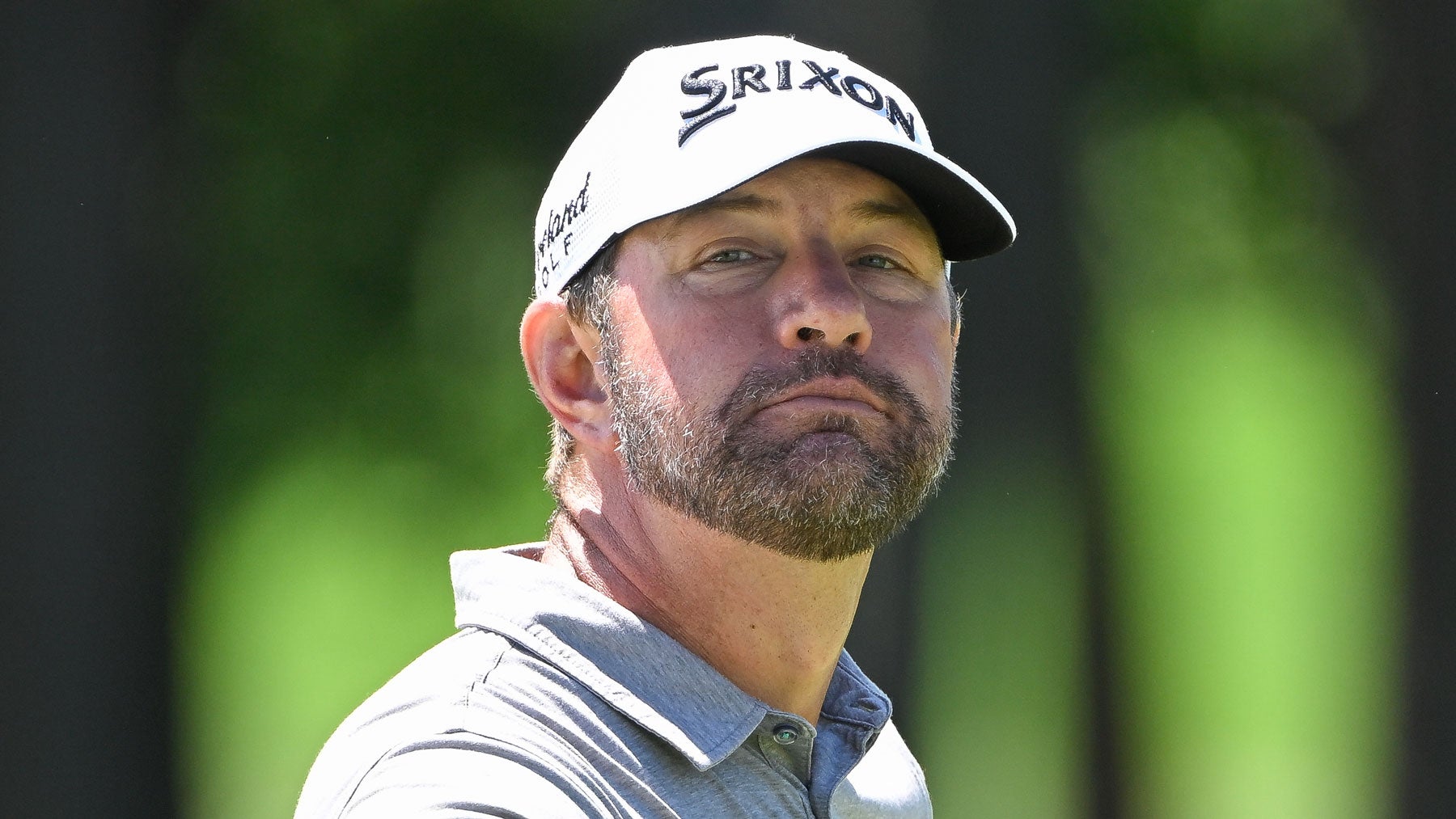With the PGA Championship wrapped up, the PGA Tour board is under attack again

PGA Tour flag.
Getty Images
While Xander Schauffele shook hands and asked for an endless stream of photos after his thrilling PGA Championship victory, some bad news came from the PGA Tour. However, one member of the Policy Board had resigned.
Mark Flaherty, one of the independent directors who work with Tour players to pass bylaws and set up the Tour for success, issued a resignation statement Sunday evening, effective immediately. Flaherty, the director of Goldman Sachs, has served in that role for more than four years, but is now leaving a large void in his departure. The timing is scary.
Flaherty's resignation comes six days after that of Jimmy Dunne, who booked the PGA Championship with disturbing travel news. Dunne's resignation comes as there has been “no tangible progress” in tour talks with the Saudi Public Investment Fund, the owners of LIV Golf. Flaherty's letter was accompanied by tour commissioner Jay Monahan and board director Ed Herlihy, but did not mention the directors of the six players on the board.
Dunne called his role “very bad” last week, in part because player directors have outnumbered independent directors. Tiger Woods, Patrick Cantlay, Jordan Spieth, Peter Malnati, Webb Simpson and Adam Scott are the group of six. Dunne's departure leaves four players without players. Flaherty's departure now leaves just three: Herlihy, Mary Meeker and Joe Gorder. Herlihy is chairman of the board, and Gorder is the newly appointed chairman of PGA Tour Enterprises, a for-profit company that received a $1.5 billion investment in January from Strategic Sports Group.
Tour fans would do well to be confused by the chaos. The Policy Board is not meant to be seen as a game of musical chairs. Player directors are appointed for three-year, fixed terms. After three years on the board, he was replaced by the chairman of the Players' Advisory Council, which brings players' concerns to the board.
Despite its established structure, the board has had several months of inconsistency over the past year. It was 12 months ago that Herlihy and Dunne held secret meetings with the PIF without the full knowledge of the board, or visiting membership. Within two months of the two sides signing the Framework Agreement – the agreement to negotiate the agreement – two major changes took place. First, Randall Stephenson, the CEO of AT&T, resigned after 12 years in his position. At the time, AT&T was a sponsor of many tournaments, but Stephenson admitted that the deal with PIF was not something he could “support in good conscience.”
Then in late July, Tiger Woods took an additional seat on the board after 41 of the game's top players signed a letter and sent it to commissioner Monahan in the middle of the night demanding that Woods have a seat. They wanted the most important voice in the room, and none was bigger than Woods's. They also wanted to crunch the numbers, to make sure the board had more player votes than non-player votes. They got their wish, but now months later they have been met with a breakdown in the involvement of independent directors.
There are many reasons why a board is structured in such a balanced way. The best golfers in the world are great at being just that, golfers. They know better than anyone, what works best see when it comes to their trading. Independent directors are some of the most experienced business leaders in America. Some of them deal with mergers and acquisitions, negotiations, legal work, trade financing, etc. Their opinions are the right balance against the shortcomings any elite athletes may have on their collective C/Vs. Not to mention their availability. We've seen Woods, Rory McIlroy, Adam Scott and other players realize how many Zoom meetings they've attended from different time zones and odd hours of the night to improve as a unit.
“If you ask the coaches, we don't sleep a lot,” Woods said after missing the ax this week.
In recent weeks, the Policy Board has come up big, with Webb Simpson wanting to resign his seat but only if McIlroy is allowed to take it from him. Simpson's term ends at the end of 2025, and McIlroy was happy to accept. Unfortunately for both of them, “there was a group of people on the board who were probably uncomfortable with me coming back for some reason,” McIlroy said at the Wells Fargo Championship two weeks ago.
Even if two well-intentioned professionals want to exchange positions, the dominance of board positions does not allow for such an easy transaction. The remaining board members will have to vote on the matter first, something McIlroy should know better than most, if he resigns from the board in November, resulting in a unanimous vote in favor of Jordan Spieth to replace him. When news of McIlroy's denial broke, Commissioner Monahan jumped into action, clarifying in a statement, “Today's news is in no way a comment on Rory's important opinion and influence. It is simply a matter of following our governance process when a Tour player becomes a member of the Board.”
Put it all together and every meeting the board holds looks different every time it comes together. For a business that has maintained its status quo for years entering 2023, every move continues to feel strange. McIlroy's denial. Dunne's resignation. Flaherty, too. It certainly upsets some of those involved.
“I would say my confidence level going into last week was low, you know, as it was,” McIlroy said during the PGA Championship. “And with this news that Jimmy has resigned and knows the relationship he has with the other side, and how much warmth is coming from the other side, it's concerning.”
Source link





